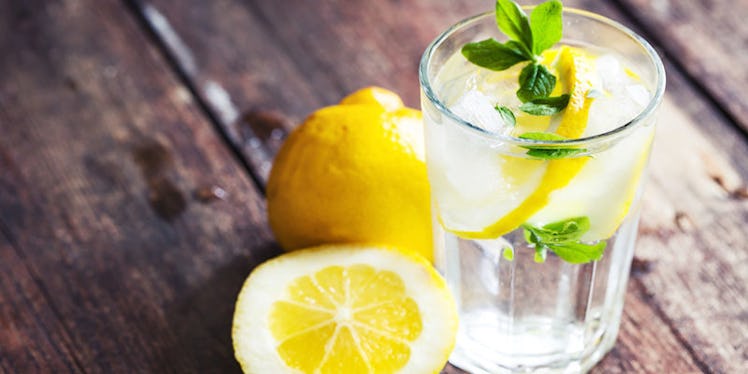
You've Probably Eaten A Ton Of Gross Bacteria If You Order Lemons In Drinks
We all do things that can be pretty bad for us without even realizing it.
Remember when we ruined your mornings by telling you eating bananas for breakfast was a pretty bad idea?
Well, it turns out stuffing your face with this yellow fruit isn't the only seemingly innocent thing that can have some negative health consequences.
If you're someone who drinks lemon water at restaurants on the reg, you might want to put your glass down and pay attention.
Apparently, those slices of lemon floating in your drink basically double as a germ-infested life raft that can harbor all sorts of potentially harmful microbes.
In a study published by the Journal of Environmental Health, researchers collected samples from the rinds and flesh of 76 lemons from 21 restaurants over the course of 43 visits and found 70 percent of the lemons contained microbial growth from 25 different species.
The researchers swabbed the lemons as soon as the drinks were served to avoid any further contamination, and although they could not confirm the exact origin of the germs, the researchers theorized the microbes could have come from restaurant employees, raw meat or poultry contamination.
In the report, the authors of the study revealed,
The microbes found on the lemon samples in our investigation all have the potential to cause infectious diseases at various body sites, although the likelihood was not determined in this study. Restaurant patrons should be aware that lemon slices added to beverages may include potentially pathogenic microbes.
Philip Tierno, a clinical professor of microbiology and pathology at New York University School of Medicine and author of The Secret Life of Germs, has also conducted studies on the matter which have produced similar (and equally disgusting) results.
Tierno told Elle, he "always comes up with evidence of contamination from the skin, respiratory secretions, and fecal matter," on the rinds of lemons, including things like E. coli, enterococcus, staphylococcus, candida and evennorovirus.
According to Tierno,
People are touching the lemon in your glass, handling it, cutting it, placing it in a container or a cup, or a glass; and then picking up those slices at a later point in time and dropping them into a drink and putting them on the rim of a glass. You can easily see how those lemon slices and lemon wedges can be contaminated.
If you're using those citrus slices to jazz up your vodka soda, you'll be glad to know Tierno found strong alcoholic drinks can combat the bacteria on those pesky lemons.
However, in order to kill the germs, your drink would have to be straight alcohol and even then, it still wouldn't be able to banish the viruses from your beverage.
But don't worry. If you're looking for a way to enjoy your drink with fewer germs, you can always order your lemons of the side and squeeze the juice directly into your drink instead of tossing the whole germ-covered slice in your glass.
Citations: How Dirty Is That Lemon Wedge in Your Drink? (Elle)